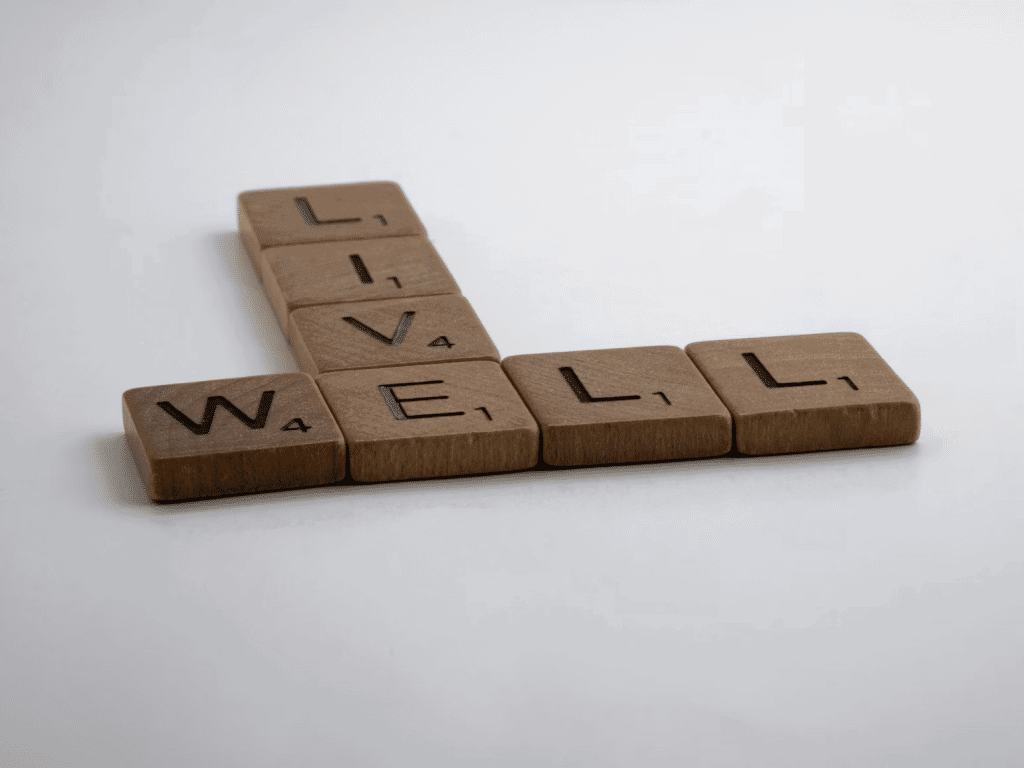Your daily choices shape how you feel physically and mentally, and small changes often have surprising effects. Replacing a social media scroll with a ten-minute walk at lunch can boost your afternoon energy while choosing fruit and nuts over processed snacks helps maintain steady focus through long meetings. Before tackling stressful tasks, a two-minute breathing pause can ease tension in your shoulders and neck.
As these adjustments become part of your routine, you might notice yourself making other beneficial changes – adding a morning stretch session or setting an earlier bedtime feels natural rather than forced. The combination of thoughtful food choices, regular movement, practical stress management, and consistent sleep habits affects everything from your concentration to your mood, making each positive change a stepping stone to better well-being.
Why Lifestyle Changes Matter for Stress and Wellness
Your body and brain begin adapting within days of changing daily habits. A ten-minute morning walk can lower blood pressure readings after just a week, while switching from coffee to green tea in the afternoon often reduces evening muscle tension. Regular mealtimes help stabilize blood sugar, which sharpens focus during important tasks. When you notice clear signs of improvement in sleep quality, energy levels, and mood, you’ll have a much easier time identifying which changes work best for your lifestyle.
Recognizing Stress Signals
Your body sends clear signals when stress affects your health. Tight shoulders during work, afternoon energy crashes, or disrupted sleep patterns all point to areas needing attention. Paying attention to these physical cues helps identify which changes have the most immediate positive impact. A tension headache might signal a need for regular screen breaks, while mid-afternoon fatigue could indicate a need to adjust meal timing.
Prevention Through Early Action
Modest adjustments stick better than major lifestyle overhauls. After two weeks of repetition, a five-minute morning stretch while coffee brews or a glass of water before lunch becomes automatic. After a month of these simpler habits, adding a 9:30 p.m. phone cutoff or spending Sunday afternoons prepping three days of lunches feels less daunting.
Fueling Your Body and Mind with the Right Nutrition
What you eat directly affects your energy and stress levels throughout the day — smart diet and lifestyle changes can reduce acid reflux and stabilize blood sugar, which helps maintain steady energy instead of experiencing mid-afternoon crashes. For instance, a sandwich eaten quickly at your desk affects your body differently than the same food enjoyed during a proper lunch break. Your digestive system responds better to consistent meal times and mindful food choices, leading to improved concentration during afternoon meetings and better stress management during high-pressure deadlines.
Strategic Meal Timing
Eating at regular intervals helps regulate cortisol, your body’s primary stress hormone. A protein-rich breakfast by 9 a.m., followed by lunch before 2 p.m., prevents the energy dips that often trigger stress eating. Mid-morning nuts and afternoon fruit provide steady fuel for your brain, reducing irritability during challenging tasks. Later on, when meetings run late, keeping a banana or handful of almonds at your desk can help keep this pattern.
Sleep and Stress Management
The right food choices create a calmer nervous system throughout your day. Starting with whole grain toast or oatmeal instead of sugary cereals provides sustained morning energy. At lunch, choosing brown rice or quinoa over white bread prevents the afternoon sluggishness that makes work more challenging. When energy dips strike, reaching for apple slices with almond butter instead of processed snacks keeps you more alert through late-day tasks when your attention might be flagging.
Mindfulness as a Tool for Everyday Balance
Simple mindfulness practices reduce stress responses within seconds. For example, taking three deep breaths before answering a difficult email gives your brain time to process and respond thoughtfully instead of reacting. Taking brief pauses between tasks helps clear mental clutter, and specific breathing techniques can calm your nervous system during high-pressure situations. Adding these small mental breaks into your existing routine creates natural stress buffers throughout your day.
Quick Mental Resets
Short mindfulness breaks help maintain emotional balance during busy days. Counting five breaths while waiting for the coffee to brew turns a passive moment into stress relief. Setting a quiet minute between meetings to notice physical tension lets you adjust your posture and release shoulder strain. When projects feel overwhelming, taking 30 seconds to name three things you see, hear, and feel brings your attention back to the present moment and reduces anxiety about future tasks.
Practical Breathing Techniques
Specific breathing patterns can shift your stress response in predictable ways. Breathing in for four counts and out for six reduces heart rate during tense phone calls or difficult conversations. The simple act of following your breath while waiting for your computer to update creates a natural pause in mental chatter. Using the walk to your car as a mindful moment helps separate work stress from home time, improving your evening relaxation.
The Importance of Sustainable Lifestyle Adjustments
A morning person might succeed with early exercise, while someone who gains energy in the evening does better with post-work movement. Sleep habits, energy cycles, and work demands all affect which changes stick and which fade away. By matching new habits to your existing routines and personal preferences, you build sustainable improvements that feel natural rather than forced. Start with changes that align with your current patterns, then gradually adjust based on what works for you:
- Track your natural energy peaks and schedule demanding tasks during these times. This simple shift often reduces work stress without changing the tasks themselves.
- Notice which healthy habits already fit easily into your day, like taking stairs or drinking water with meals, then build on these existing patterns.
- Set up your environment to encourage better choices. For example, keep a water bottle at your desk, store running shoes by the door, or prepare vegetables at eye level in the fridge.
- Create morning and evening routines that work with your schedule. For example, a 10-minute stretching session might be better than a 60-minute workout, or three 5-minute walking breaks could replace one longer walk.
- Link new habits to existing ones. Do a brief breathing exercise while brewing coffee, stretch while cooking lunch, or practice mindfulness during your commute.
- Adjust your sleep schedule in 15-minute increments instead of trying to change bedtime by an hour or more at once.
Final Thoughts
Simple changes to your daily routines can reduce stress and boost energy within weeks. Paying attention to when and how you eat, move, breathe, and rest lets you identify the changes that work best for your schedule and energy patterns.
As you notice positive effects from initial modifications, you’ll spot more opportunities to reduce stress and boost well-being through simple, practical shifts in your routine.




















